Algae: An Overview
Algae are a diverse group of photosynthetic organisms that are found in various aquatic environments, such as oceans, lakes, and rivers. They can also be found in moist terrestrial environments. Algae play a critical role in the ecosystem as they are primary producers, meaning they convert sunlight into energy through the process of photosynthesis. They come in a wide range of sizes and shapes, from microscopic single-celled organisms to large multicellular seaweeds.
Types of Algae
Algae can be classified into several major groups, including:
- Green Algae (Chlorophyta): These algae are commonly found in freshwater environments and have chlorophyll a and b, giving them a green color.
- Red Algae (Rhodophyta): These algae are predominantly marine and are often found in deeper waters. They contain a pigment called phycoerythrin, which gives them a reddish color.
- Brown Algae (Phaeophyta): These large, multicellular algae are commonly found in marine environments. They are known for their characteristic brown color due to the presence of a pigment called fucoxanthin.
- Diatoms: These are a type of photosynthetic algae that have a unique glass-like cell wall made of silica. They are found in both freshwater and marine environments and are a major component of phytoplankton.
Ecological Importance
Algae are essential for the health of aquatic ecosystems. They serve as the base of the food chain, providing energy for various organisms, including fish and other aquatic life. Additionally, algae play a crucial role in the global carbon cycle by removing carbon dioxide from the atmosphere through photosynthesis.
Human Uses
Humans have utilized algae for various purposes, including:
- Food: Some species of algae, such as nori and kelp, are consumed as food in many cultures.
- Biotechnology: Algae are used in the production of biofuels, pharmaceuticals, and other valuable compounds.
- Environmental Applications: Algae are being explored for their potential in wastewater treatment and carbon capture technologies.
Study Guide
When studying algae, consider the following key points:
- Understand the process of photosynthesis in algae and how it contributes to the ecosystem.
- Learn to identify the major groups of algae and their distinguishing characteristics.
- Explore the ecological importance of algae and their role in nutrient cycling.
- Investigate the human uses of algae and their potential in biotechnology and environmental applications.
[Algae] Related Worksheets and Study Guides:
.◂Science Worksheets and Study Guides Seventh Grade. Cell Processes
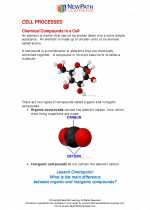
 Activity Lesson
Activity Lesson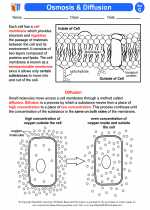
 Worksheet/Answer key
Worksheet/Answer key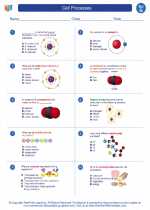
 Worksheet/Answer key
Worksheet/Answer key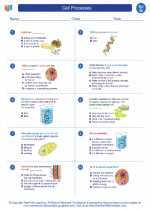
 Worksheet/Answer key
Worksheet/Answer key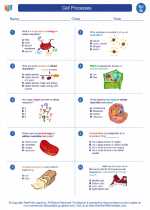
 Worksheet/Answer key
Worksheet/Answer key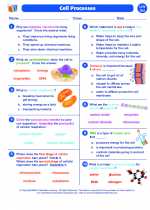
 Vocabulary/Answer key
Vocabulary/Answer key
 Vocabulary/Answer key
Vocabulary/Answer key
 Vocabulary/Answer key
Vocabulary/Answer key
 Vocabulary/Answer key
Vocabulary/Answer key
 Vocabulary/Answer key
Vocabulary/Answer key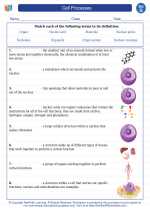
 Vocabulary/Answer key
Vocabulary/Answer key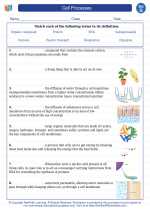
 Vocabulary/Answer key
Vocabulary/Answer key
